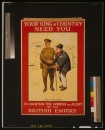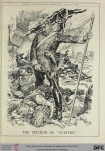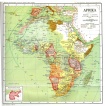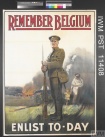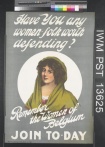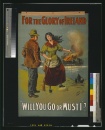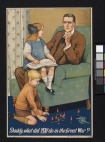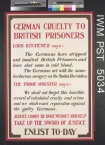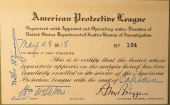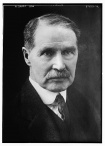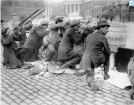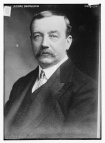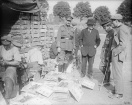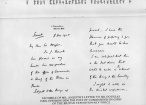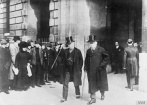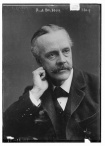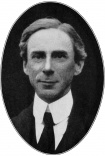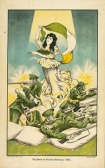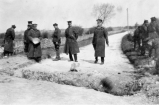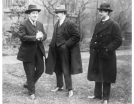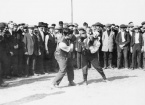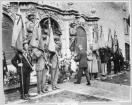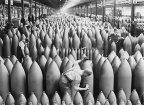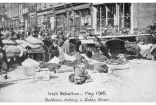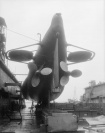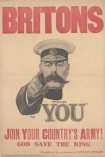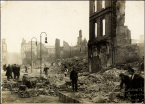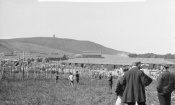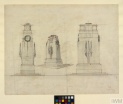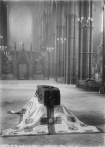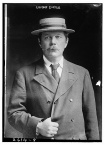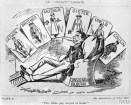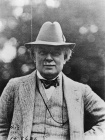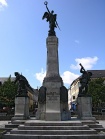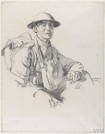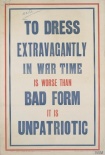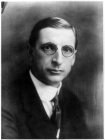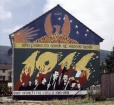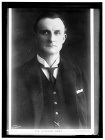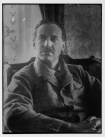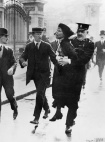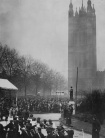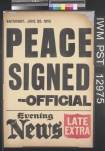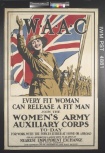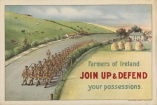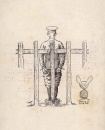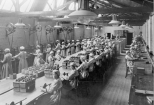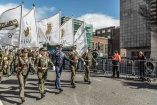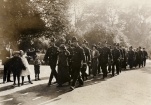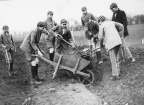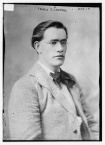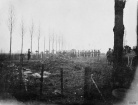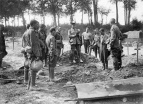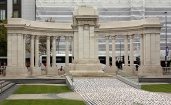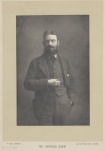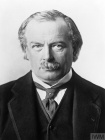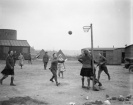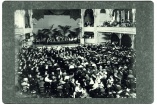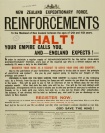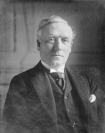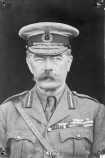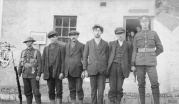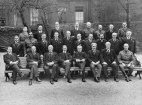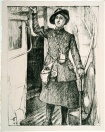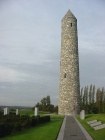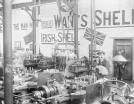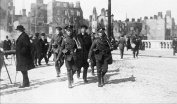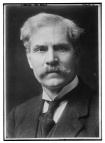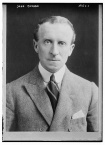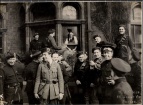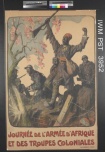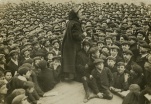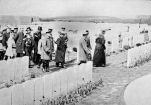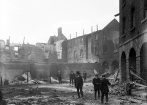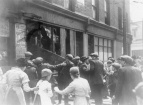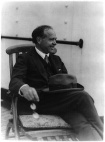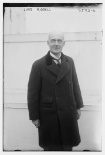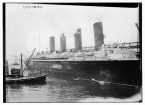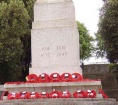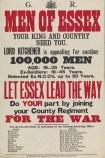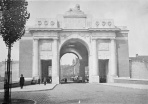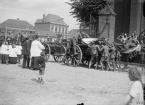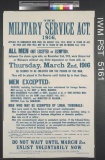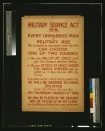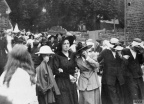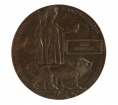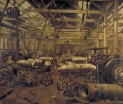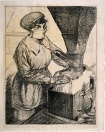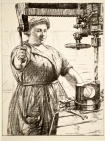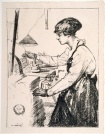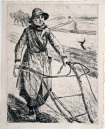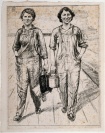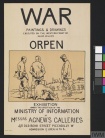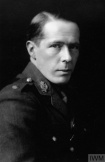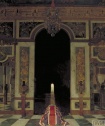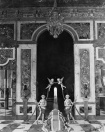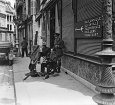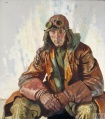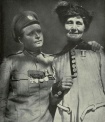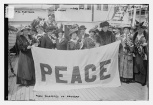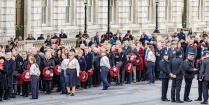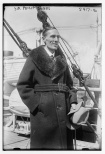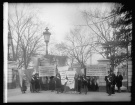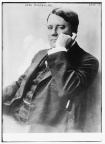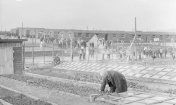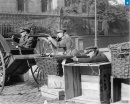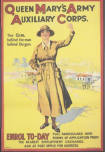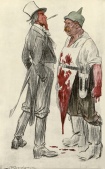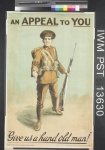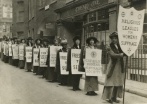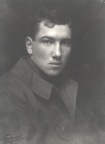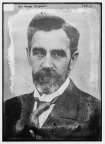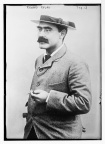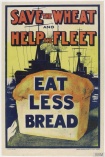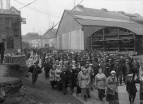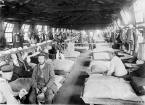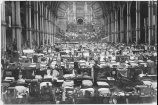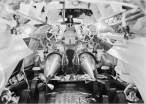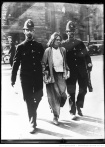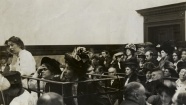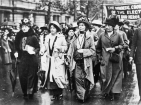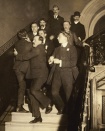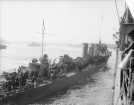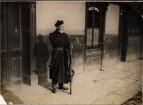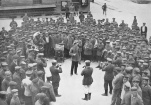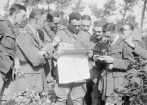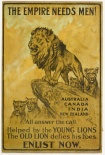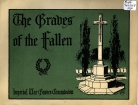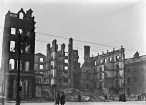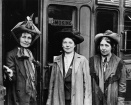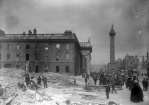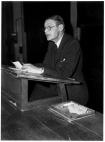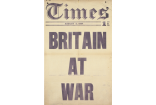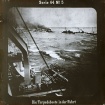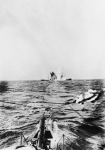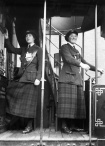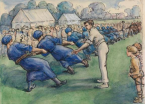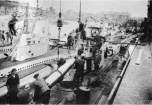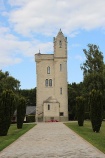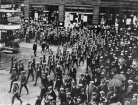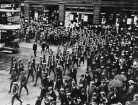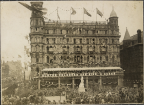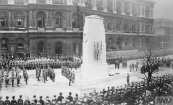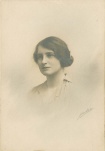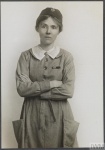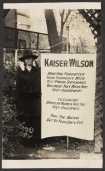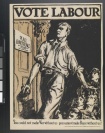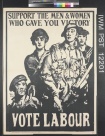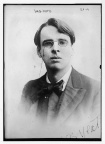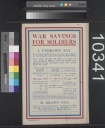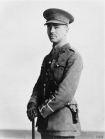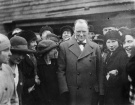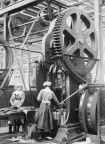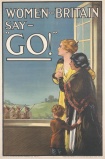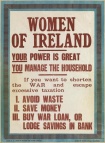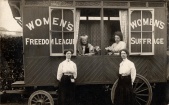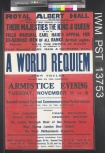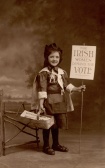Regions Ireland
Survey Articles (Regional)
Regional Thematic Articles
- Centenary (Ireland)
- Commemoration, Cult of the Fallen (Great Britain and Ireland)
- Easter Rising (Great Britain and Ireland)
- Governments, Parliaments and Parties (Great Britain and Ireland)
- Historiography 1918-Today (Ireland)
- Labour, Labour Movements, Trade Unions and Strikes (Great Britain and Ireland)
- Literature (Great Britain and Ireland)
- Making Sense of the War (Great Britain and Ireland)
- Post-war Conflict (Great Britain and Ireland)
- Press/Journalism (Great Britain and Ireland)
- Pre-war Paramilitary Mobilisation (Great Britain and Ireland)
- Prisoners of War and Internees (Great Britain)
- Propaganda at Home (Great Britain and Ireland)
- Social Conflict and Control, Protest and Repression (Great Britain and Ireland)
- Subjectivity and Emotions (Great Britain and Ireland)
- Veterans' Associations (Great Britain and Ireland)
- Women's Mobilization for War (Great Britain and Ireland)
Encyclopedic Entries
See also
- Between Acceptance and Refusal - Soldiers' Attitudes Towards War
- Centenary (Education, Pedagogy, Youth Programs)
- Controversy: Total War
- Demobilization
- Espionage
- Press/Journalism
- Propaganda at Home and Abroad
- The Churches
- The Paris Peace Conference and its Consequences
- The Way to War
- Willingly to War. Public Response to the Outbreak of War
- Women’s Mobilization for War
Survey Articles (Regional)
-
Ireland’s war experience cannot be separated from Irish politics. Indeed, the story is not one of 1914-18 but of 1912-23, as the vast majority of people sought to change Ireland’s place in the … READ MORE
Regional
Regional Thematic Articles
-
Irish engagement with the First World War was active and intense and yet, for much of the 20th century, commemoration of the war in Ireland was marked by division, antagonism, and amnesia. … READ MORE
Regional Thematic -
The commemoration of the First World War in Britain and Ireland has a complex history. Immediately after the war, the dead were memorialised in a range of public and private spaces. Next of Kin … READ MORE
Regional Thematic -
Although a military failure, the 1916 rebellion transformed Ireland by destroying the possibility of a political settlement between Irish nationalists and the British state and by popularising a … READ MORE
Regional Thematic -
The Great War marked a period of profound upheaval in British politics. The old controversies of Edwardian politics were replaced by new debates about military strategy, civil-military relations and … READ MORE
Regional Thematic -
This historiographical article surveys key interventions in scholarship of Ireland during the First World War, exploring how the war has moved from the margins of historical scholarship to being … READ MORE
Regional Thematic -
The wartime demand for labour enhanced its economic and political strength. Industry was restructured, with engineering and other war work privileged. Trade unionism was greatly strengthened. The … READ MORE
Regional Thematic -
The literature produced in Great Britain and Ireland during and after the First World War spanned a wide range of genres and styles. Popular fiction and poetry were written and avidly read by … READ MORE
Regional Thematic -
At the outbreak of war, the populations of Britain and Ireland understood that values such as national honour, liberty, and the rights of small nations were at stake. It was therefore necessary to … READ MORE
Regional Thematic -
The outbreak of war in 1914 interrupted a political crisis within the United Kingdom over the future of Ireland. Irish nationalists had been promised devolved government, which Ulster Unionists had … READ MORE
Regional Thematic -
Discussions of press and propaganda in the British Isles sometimes focus excessively on a few metropolitan newspapers, posters or atrocity stories, and examples of repressive censorship. However, the … READ MORE
Regional Thematic -
Several distinct cultural, political, and class-based groups organized paramilitary militias in Ireland prior to the First World War. Though never exchanging fire, their rhetoric and rapid military … READ MORE
Regional Thematic -
During the First World War, hundreds of thousands of men found themselves interned in Britain. These were made up of: civilians already present in the country in August 1914; civilians brought to … READ MORE
Regional Thematic -
British and Irish domestic propaganda evolved patchily throughout the war. It underwent several stages of development, was delivered by many official and unofficial bodies, including critics, and … READ MORE
Regional Thematic -
This article considers social conflict and protest within the United Kingdom during the First World War and state efforts to exert control. This complex, under-explored topic gained greater attention … READ MORE
Regional Thematic -
This article assesses the place of shell shock in the subjective experience of British servicemen in the First World War. It looks at the role of morale in recruiting and organising the British armed … READ MORE
Regional Thematic -
No British government had ever formed or provided for an army of the size required to honour its military commitments during the Great War. The initial treatment and ongoing support for veterans thus … READ MORE
Regional Thematic -
This article briefly surveys the impact of the First World War on the lives of British women. Focusing on the suffrage campaign, the modernisation thesis, women in uniform and women’s lives in the … READ MORE
Regional Thematic
Encyclopedic Entries
-
Asquith was Prime Minister of the United Kingdom at the outbreak of war. He formed a coalition in May 1915 but accusations of ineffectiveness led to his replacement by David Lloyd George in December … READ MORE
Entry -
Between February 1915 and the Armistice, Germany conducted three submarine campaigns against British, Entente and neutral merchant shipping. The final unrestricted campaign that started in early 1917 … READ MORE
Entry -
The "Black and Tans" were British ex-soldiers recruited to reinforce the United Kingdom’s police force in Ireland. The "Auxiliaries" were a temporary force of paramilitary police, composed of … READ MORE
Entry -
Following a career as British consul and humanitarian investigator, Roger Casement became involved in the Irish nationalist movement and the Irish Volunteers. On the outbreak of war, he sought help … READ MORE
Entry -
Michael Collins was a revolutionary leader who rose to become chairman of the Irish provisional government in 1922 and Commander-in-chief of its army in the brief interval that supervened before his … READ MORE
Entry -
De Valera was a prominent figure in the Easter 1916 rebellion against British rule. He subsequently became head of the Irish … READ MORE
Entry -
World War I was not simply a conflict among European states but a global war of empires. The fighting took place not only in Europe, but also in Africa, Asia, and across the Middle East, and it … READ MORE
Entry -
The campaign for Irish Home Rule lasted from 1870 until 1914. When Home Rule became a realistic possibility in 1912, a period of political turmoil ensued. Parliamentary solutions to the impasse were … READ MORE
Entry -
The "khaki" general election of 1918 was held in Great Britain almost immediately after the Armistice. It was the first held under what was almost universal adult suffrage. The result was a crushing … READ MORE
Entry -
William Orpen, portraitist and subject painter, born in Dublin, was one of the most successful artists of his generation. He enlisted in the British army in December 1915 and was appointed an … READ MORE
Entry -
Patrick Pearse was one of the leaders of the 1916 Easter Rising in which the Irish Republican Brotherhood (IRB), an extremely nationalist organization, attempted to establish an independent Ireland … READ MORE
Entry -
An Irish-born writer and critic, best known as a playwright, George Bernard Shaw was an ardent opponent to World War I. Already in his fifties at the start of the war, Shaw was outspoken in his … READ MORE
Entry -
This article briefly introduces the suffragettes and their campaign, reflecting on their pre-war methods and the divisions that emerged within the movement. It then discusses their varied, sometimes … READ MORE
Entry
See also
-
Soldiers’ attitudes towards the Great War are a controversial issue, as they prove difficult to assess and raise complex methodological questions. They evolved during the course of the conflict, … READ MORE
Thematic -
The centenary of the First World War revealed palpable anxieties around a loss of connection to an event that was now 100 years old and without any living survivors. As a result, a good degree of … READ MORE
Thematic -
Total war is a controversial term used in the past by politicians, publicists and military officers as well as by computer specialists and academics in the present. Since its conception by French … READ MORE
Thematic -
The end of fighting in 1918 raised hopes for swift and equitable military demobilization amongst soldiers and civilians. The timing and nature of demobilization varied greatly, though, due to … READ MORE
Thematic -
During the entire war, warring powers used the “secret war” to try to break the balance of the battlefield. Generally created in the previous few decades, intelligence and security services saw … READ MORE
Thematic -
Word War I had a significant impact on the evolution of the European media scene. Before the start of the war, newspapers in Europe were increasingly popular, free and independent, and transnational. … READ MORE
Thematic -
This article summarizes and compares the principal arguments and strategies of propaganda at the home front, the military front, as well as in neutral and enemy countries. These included the … READ MORE
Thematic -
Reflecting current historiography, this article focuses primarily on Christian churches centered in the main European theater of the Great War, including more global interactions with the other … READ MORE
Thematic -
This article offers an overview of peacemaking after the First World War from the armistices of 1918 until 1923. It considers the outcomes of the five Parisian treaties (Versailles, Saint-Germain and … READ MORE
Thematic -
Imperialism shaped almost every facet of international politics from 1898 to 1914. Imperial concerns brought Britain into entente relationships with France and Russia. This Triple Entente often … READ MORE
Thematic -
It may surprise us to learn that some sectors of the European public were in favour of the war in 1914. The impact of modern weapons was not well understood and many people in the government, … READ MORE
Thematic -
This article explores women’s economic, social, and political responses to the First World War. It addresses their mobilization including their engagement with the war effort as well as their … READ MORE
Thematic
Survey Articles (Regional)
-
Ireland’s war experience cannot be separated from Irish politics. Indeed, the story is not one of 1914-18 but of 1912-23, as the vast majority of people sought to change Ireland’s place in the … READ MORE
Regional
Regional Thematic Articles
-
Irish engagement with the First World War was active and intense and yet, for much of the 20th century, commemoration of the war in Ireland was marked by division, antagonism, and amnesia. … READ MORE
Regional Thematic -
The commemoration of the First World War in Britain and Ireland has a complex history. Immediately after the war, the dead were memorialised in a range of public and private spaces. Next of Kin … READ MORE
Regional Thematic -
Although a military failure, the 1916 rebellion transformed Ireland by destroying the possibility of a political settlement between Irish nationalists and the British state and by popularising a … READ MORE
Regional Thematic -
The Great War marked a period of profound upheaval in British politics. The old controversies of Edwardian politics were replaced by new debates about military strategy, civil-military relations and … READ MORE
Regional Thematic -
This historiographical article surveys key interventions in scholarship of Ireland during the First World War, exploring how the war has moved from the margins of historical scholarship to being … READ MORE
Regional Thematic -
The wartime demand for labour enhanced its economic and political strength. Industry was restructured, with engineering and other war work privileged. Trade unionism was greatly strengthened. The … READ MORE
Regional Thematic -
The literature produced in Great Britain and Ireland during and after the First World War spanned a wide range of genres and styles. Popular fiction and poetry were written and avidly read by … READ MORE
Regional Thematic -
At the outbreak of war, the populations of Britain and Ireland understood that values such as national honour, liberty, and the rights of small nations were at stake. It was therefore necessary to … READ MORE
Regional Thematic -
The outbreak of war in 1914 interrupted a political crisis within the United Kingdom over the future of Ireland. Irish nationalists had been promised devolved government, which Ulster Unionists had … READ MORE
Regional Thematic -
Discussions of press and propaganda in the British Isles sometimes focus excessively on a few metropolitan newspapers, posters or atrocity stories, and examples of repressive censorship. However, the … READ MORE
Regional Thematic -
Several distinct cultural, political, and class-based groups organized paramilitary militias in Ireland prior to the First World War. Though never exchanging fire, their rhetoric and rapid military … READ MORE
Regional Thematic -
During the First World War, hundreds of thousands of men found themselves interned in Britain. These were made up of: civilians already present in the country in August 1914; civilians brought to … READ MORE
Regional Thematic -
British and Irish domestic propaganda evolved patchily throughout the war. It underwent several stages of development, was delivered by many official and unofficial bodies, including critics, and … READ MORE
Regional Thematic -
This article considers social conflict and protest within the United Kingdom during the First World War and state efforts to exert control. This complex, under-explored topic gained greater attention … READ MORE
Regional Thematic -
This article assesses the place of shell shock in the subjective experience of British servicemen in the First World War. It looks at the role of morale in recruiting and organising the British armed … READ MORE
Regional Thematic -
No British government had ever formed or provided for an army of the size required to honour its military commitments during the Great War. The initial treatment and ongoing support for veterans thus … READ MORE
Regional Thematic -
This article briefly surveys the impact of the First World War on the lives of British women. Focusing on the suffrage campaign, the modernisation thesis, women in uniform and women’s lives in the … READ MORE
Regional Thematic
Encyclopedic Entries
-
Asquith was Prime Minister of the United Kingdom at the outbreak of war. He formed a coalition in May 1915 but accusations of ineffectiveness led to his replacement by David Lloyd George in December … READ MORE
Entry -
Between February 1915 and the Armistice, Germany conducted three submarine campaigns against British, Entente and neutral merchant shipping. The final unrestricted campaign that started in early 1917 … READ MORE
Entry -
The "Black and Tans" were British ex-soldiers recruited to reinforce the United Kingdom’s police force in Ireland. The "Auxiliaries" were a temporary force of paramilitary police, composed of … READ MORE
Entry -
Following a career as British consul and humanitarian investigator, Roger Casement became involved in the Irish nationalist movement and the Irish Volunteers. On the outbreak of war, he sought help … READ MORE
Entry -
Michael Collins was a revolutionary leader who rose to become chairman of the Irish provisional government in 1922 and Commander-in-chief of its army in the brief interval that supervened before his … READ MORE
Entry -
De Valera was a prominent figure in the Easter 1916 rebellion against British rule. He subsequently became head of the Irish … READ MORE
Entry -
World War I was not simply a conflict among European states but a global war of empires. The fighting took place not only in Europe, but also in Africa, Asia, and across the Middle East, and it … READ MORE
Entry -
The campaign for Irish Home Rule lasted from 1870 until 1914. When Home Rule became a realistic possibility in 1912, a period of political turmoil ensued. Parliamentary solutions to the impasse were … READ MORE
Entry -
The "khaki" general election of 1918 was held in Great Britain almost immediately after the Armistice. It was the first held under what was almost universal adult suffrage. The result was a crushing … READ MORE
Entry -
William Orpen, portraitist and subject painter, born in Dublin, was one of the most successful artists of his generation. He enlisted in the British army in December 1915 and was appointed an … READ MORE
Entry -
Patrick Pearse was one of the leaders of the 1916 Easter Rising in which the Irish Republican Brotherhood (IRB), an extremely nationalist organization, attempted to establish an independent Ireland … READ MORE
Entry -
An Irish-born writer and critic, best known as a playwright, George Bernard Shaw was an ardent opponent to World War I. Already in his fifties at the start of the war, Shaw was outspoken in his … READ MORE
Entry -
This article briefly introduces the suffragettes and their campaign, reflecting on their pre-war methods and the divisions that emerged within the movement. It then discusses their varied, sometimes … READ MORE
Entry







































